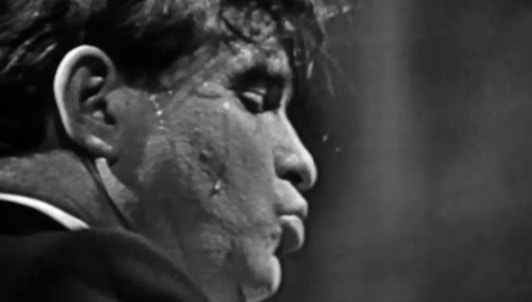Astounding virtuosity, incomparable musicianship: Ivry Gitlis, the violin blessed by the Gods.
"I have to play to feel alive. The day I stop, I am dead". The young man who expresses himself in this way is Ivry Gitlis, born in Haïfa in 1922. He plays, as he did in March 2008 at the Salle Pleyel with Martha Argerich. An adventurer, he always relied on his lucky stars when he was broke: he took a boat to New York without a penny to take lessons with Professor Pashrus. On board he was taken to dinner every night by a generous philanthropist who gave him a thousand dollars as soon as he set foot in New York. Curious about everything and eager to experience new sensations, he played with the Rolling Stones, John Lennon, Eric Clapton and Dizzy Gillespie, among others.
After a childhood in Israel, where his father worked as a miller, he studied at the Paris Conservatory, where he was sent by Bronislav Huberman. He won a first prize at the age of thirteen and became a student of Jacques Thibaud. "A man's violin," said the master's pupil. A refugee in England during the war, he won the Fifth Prize (only!) at the Long-Thibaud Competition in 1951 and made his debut in Paris the same year. He has played with the greatest orchestras and shared his love of music with the greatest artists (Martha Argerich, Pierre Fournier, Mischa Maisky...) who gather each summer at the Festival de Vence, which he founded.
He is certainly one of the most talented and brilliant violinists of the 20th century. His agility is astonishing, as in his riveting interpretation of Tchaikovsky's Violin Concerto in D Major, Op. 35, accompanied by the National Orchestra of the ORTF conducted by Francesco Mander: from his bow the music flows like a stream, and we don't know what to admire more, his virtuosity or his musical intelligence.
In the following three pieces, Saint-Saëns's Introduction and Rondo Capriccioso, Bartók's Sonata for Solo Violin, Op. 117 (III Melodia) and Elgar's La Capricieuse, Ivry Gitlis's violin, thanks to its astonishing natural ease, rivals the most beautiful singing. Pyrotechnic trills, stratospheric high notes, throaty accents and dazzling colors, the instrument no longer exists, there remains the music and "a man violin".
Archives:
- - "Les grands interprètes," INA archive by Gérard Herzog, 1962.
- - "Les secrets de l'orchestre," INA archive by Annie Aizieu, 1965.
- - "La rose des vents," INA archive by Claude Deflandre, 1971.

